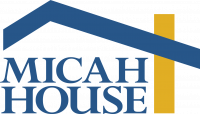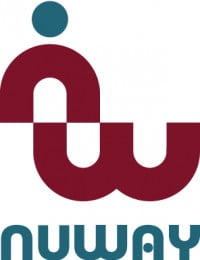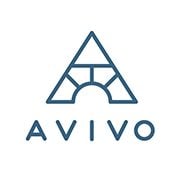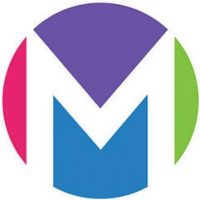
Micah House
Drug Rehab Center in Minneapolis, Minnesota
- Substance Abuse
- Opioid Addiction
- Dual Diagnosis
- Drug Addiction
- Alcoholism
Micah House, located in Minneapolis, Minnesota, is an addiction treatment facility that offers a range of services and treatment options to help individuals overcome alcoholism, dual diagnosis, opioid addiction, substance abuse, and drug addiction. They aim to create a supportive environment that promotes healing and long-term sobriety through evidence-based therapies, counseling, support groups, and personalized treatment plans.
About Micah House in Minnesota
Micah House is an addiction treatment facility located in Minneapolis, Minnesota. With a focus on helping individuals who are looking to overcome alcoholism, dual diagnosis, opioid addiction, substance abuse, and drug addiction, Micah House offers a range of services to support their recovery journey. The facility accepts private health insurance, providing accessibility to individuals seeking help. Micah House aims to create a supportive environment that promotes healing and long-term sobriety for those in need of professional assistance.
At Micah House, individuals struggling with addiction and substance abuse can find various treatment options tailored to their specific needs. The facility offers drug rehab, dual-diagnosis, inpatient, intensive outpatient, outpatient, sober-living/half-way, residential, aftercare support, detox, and partial-hospitalization levels of care. These diverse treatment methods are designed to address the complex nature of addiction, offering individuals a comprehensive approach to recovery. Through a combination of evidence-based therapies, counseling, support groups, and personalized treatment plans, Micah House strives to empower individuals on their path to sobriety.
Genders
Ages
Modality
Additional
Conditions and Issues Treated
A combination of treatments is often needed to treat drug abuse. Some addictions can be treated with counseling and support groups. In other cases, drug abuse can lead to a medical problem and require medical treatment. Treatment for drug addiction typically combines counseling and psychotherapy with medication and behavioral therapies.
A combination of treatments is often needed to treat drug abuse issues effectively. In the case of drug abuse, there is no easy answer or one-size-fits-all cure.
Opioid addiction has become a significant health problem in the United States. In 2015, there were 91 opioid overdose-related deaths per day, with a substantial increase in mortality rate in 2014.
When opioid addiction has reached a point where a person’s life becomes unmanageable, treatment options are available to help them get sober. Treatment that includes medical care with medications and counseling can help a user transition into sobriety.
When someone in struggles with both addiction and mental or emotional illness, this is considered a dual diagnosis. Dual diagnosis treatment can include therapy for these issues to happen simultaneously, which will allow either of them to be treated effectively.
Sometimes people who have suffered from addiction disorder also suffer from co-occurring disorders such as depression, anxiety, bipolar disorder, etc., making them “dual diagnoses.” Dual diagnoses require specialized treatment programs where drug and alcohol addiction are addressed along with psychiatric illnesses. Some rehabilitation facilities provide patients suffering from cooccurrences a program with highly integrated services and a clean environment with few distractions to help them succeed.
Levels of Care Offered
This center offers a variety of custom treatment tailored to individual recovery. Currently available are Drug Rehab, Dual-Diagnosis, Inpatient, Intensive Outpatient, Outpatient, Residential, Sober-Living / Half-Way, with additional therapies available as listed below.
Inpatient treatment for alcoholism or drug addiction is an option that provides the addict with a supportive environment in which they can stop using. After detox, an inpatient treatment center provides a structured environment for the addict to recover from their addiction and begin taking steps toward a lifetime of sobriety.
This type of treatment is appropriate for addicts that are most in need of intensive care and supervision. This includes those who were unable to quit on their own, those who need more structure than they can get in outpatient treatment, and those whose addiction has led them into legal trouble or severe health problems.
The Intensive Outpatient Program offered by Micah House is designed for those who need intensive care but would rather get it in the comfort of their own home. The treatment programs vary in duration and intensity and can be tailored to suit the patient’s needs. The program includes regular visits to the facility, though the overnight stay is not needed. IOP is suitable for patients who have been treated in residential treatment programs and are in the transition phase. It helps the patient live at home and discharge some work or school responsibilities even while undergoing treatment. The patients gradually get back to their routine life with the support of a friend or family member.
Outpatient treatment is often used for drug addicts in drug rehab. Outpatient treatment consists of counseling and therapy sessions. This form of treatment is also called ‘day-treatment’. The outpatient treatment process begins with the addict’s initial detox period, lasting about ten days.
Outpatient treatment is used for those who are at moderate risk for ‘slipping back’ into the addiction, for those who:
- Are not currently experiencing any side effects from withdrawal and can handle social pressure
- Can handle stressors that might trigger relapse
- Have a stable living environment or have moved out of their previous environment, which was not conducive to being sober
- Have a support system that allows them to go to a facility a few times a week while still keeping their current responsibilities
- Have no legal obligations, being either on parole or probation, that require them to seek treatment at a mandatory facility
- Are not currently experiencing any side effects from withdrawal and can handle social pressure
- Have a stable living environment or have moved out of their previous environment, which was not conducive to being sober
Sober living homes, also known as halfway houses, provide recovering people with a structured drug-free environment to live in that bridges inpatient rehab and the much less structured world of outpatient rehab. Sober living homes offer a person early in recovery the opportunity to practice recovery skills in a safe environment.
The atmosphere in sober living homes is less restrictive than in an inpatient facility. Members have to follow many rules, including not drinking and using drugs and paying rent and bills. There is no limit to the period of stay. As long as you stay, you should follow the rules because it’s the opportunity for individual and group sobriety.
Residential treatment programs are those that offer housing and meals in addition to substance abuse treatment. Rehab facilities that offer residential treatment allow patients to focus solely on recovery, in an environment totally separate from their lives. Some rehab centers specialize in short-term residential treatment (a few days to a week or two), while others solely provide treatment on a long-term basis (several weeks to months). Some offer both, and tailor treatment to the patient’s individual requirements.
Therapies & Programs
Group therapy can help build a stronger support system and give addicts in Minneapolis, MN insight into their addiction that they gain through shared conversations. Group therapy occurs in a controlled group environment, exclusive of one on one meetings. This makes it safer for patients to feel comfortable sharing the struggles they’re going through and gaining perspective.
Payment Options Accepted
For specific insurance or payment methods please contact us.
Is your insurance accepted?
Ask an expert, call (888) 674-0062
Additional Details
Specifics, location, and helpful extra information.
Minneapolis, Minnesota 55408 Phone Number(612) 314-2460 Meta DetailsUpdated November 25, 2023
Staff Verified
Micah House Patient Reviews
There are no reviews yet. Be the first one to write one.
Minneapolis, Minnesota Addiction Information
Minnesota is fighting an opioid epidemic that is leaving hundreds of its residents dead each year. Both prescription opioids and illicit opioids are widely abused in the Land of 10,000 Lakes. Heroin continues to be one of the most commonly abused drugs in the state, if not the most common illicit drug. Over 10% of all treatment admissions in Minnesota list heroin as their drug of choice.
The drug addiction problem in Minneapolis, Minnesota, is relatively bad. About 8.5% of people in Minneapolis abuse drugs. Additionally, there were 536 drug overdose deaths in 2016, a 20% increase from the previous year. There were 5,191 treatment admissions for primary alcohol dependence in 2016. Some of the most common programs include inpatient rehab, outpatient rehab, and sober living homes.
Treatment in Nearby Cities
- Monticello, MN (35.7 mi.)
- Hastings, MN (24.8 mi.)
- Morris, MN (136.5 mi.)
- Big Lake, MN (35.0 mi.)
- Duluth, MN (139.1 mi.)
Centers near Micah House



The facility name, logo and brand are the property and registered trademarks of Micah House, and are being used for identification and informational purposes only. Use of these names, logos and brands shall not imply endorsement. RehabNow.org is not affiliated with or sponsored by Micah House.




